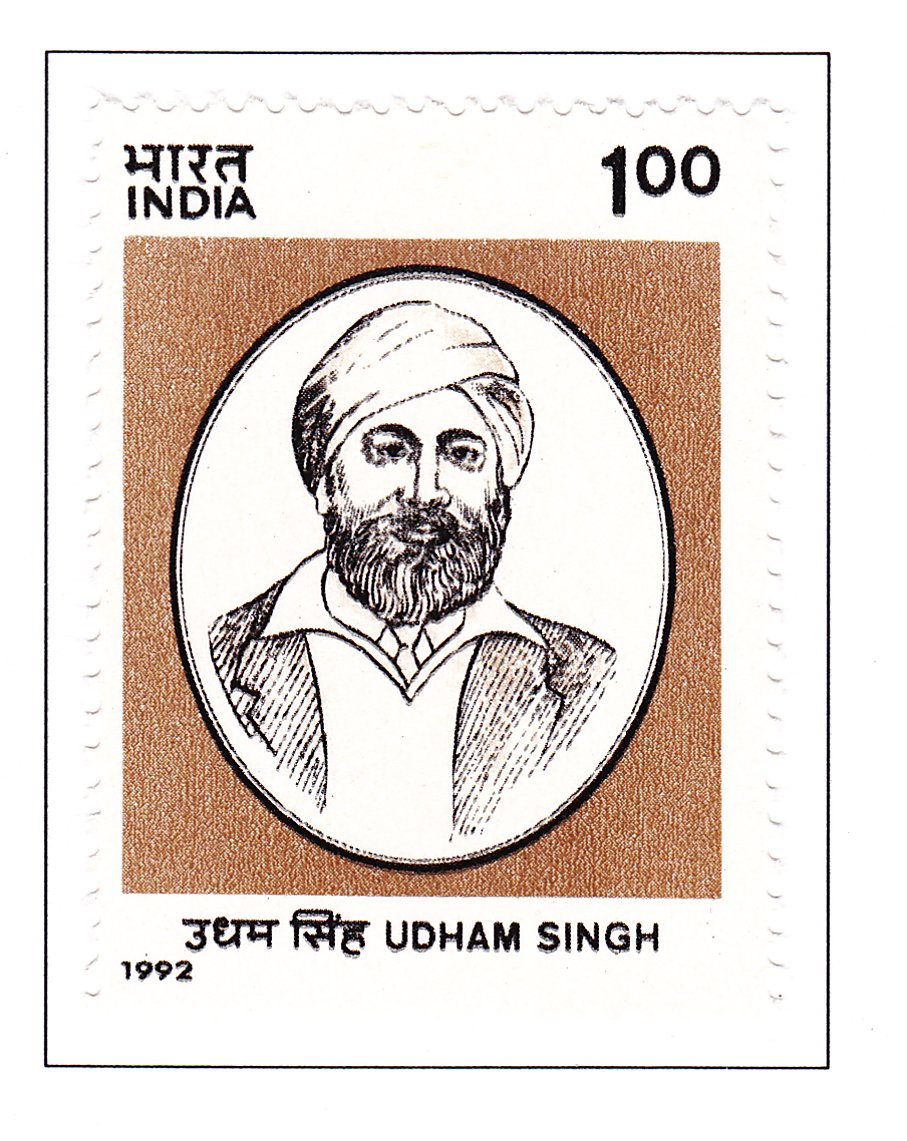Sardar Udham Singh

Technical Data
| Date of Issue | July 31, 1992 |
|---|---|
| Denomination | Rs. 1 |
| Quantity | 1,000,000 |
| Perforation | comb 13 x 13½ |
| Printer | Security Printing Press, Nashik |
| Watermark | No Watermark |
| Colors | Black | Light brown |
| Catalog Codes |
Michel IN 1355 Stamp Number IN 1412 Yvert et Tellier IN 1153 Stanley Gibbons IN 1505 |
| Themes | Commemoration | Famous people | Freedom Fighters | Headgear | Men |
Table of Contents
Sardar Udham Singh: Commemorative Stamp
Sardar Udham Singh, born on December 26, 1899, in Sunam, District Sangrur, Punjab, is a revered figure in Indian history known for his profound act of bravery and dedication to the cause of freedom. Orphaned at a young age, he found refuge in the Sikh Orphanage at Putlighar, Amritsar, where he received education and training.
Key Events in Sardar Udham Singh’s Life:
- Early Life and Resolve: After the Jallianwala Bagh massacre on April 13, 1919, orchestrated by General Dyer, Singh was deeply affected. This brutal event, which saw the killing of thousands of innocent Indians, became a turning point in his life. Singh resolved to take revenge against those responsible, particularly General Dyer, Sir Michael O’Dwyer (the Lieutenant Governor of Punjab), and Lord Zetland (the Secretary of State for India).
- Journey and Training: Singh traveled extensively, moving from country to country in search of his targets. He was arrested in 1928 and served four years in prison, being released in 1932. Following his release, he continued his quest, including a training stint in Germany to enhance his skills and strategies.
- Act of Vengeance: After 21 years of pursuit, Singh had the opportunity to confront Sir Michael O’Dwyer and Lord Zetland on March 13, 1940, at a meeting in Caxton Hall, London. Armed with a revolver, Singh succeeded in assassinating Sir Michael O’Dwyer, causing chaos and panic at the event. Singh was subsequently arrested and expressed no fear of death, stating his contentment with fulfilling his mission.
- Execution: Sardar Udham Singh was tried and sentenced to death. On July 31, 1940, he was executed at the Pantone Villa Jail in London. He faced his end with remarkable bravery and composure, kissing the gallows before his execution.
Stamp and Design Details:
- Stamp Design: The commemorative stamp honoring Sardar Udham Singh has been designed by Mr. Sankha Samanta. It captures the essence of Singh’s courage and sacrifice.
- Cancellation Design: The cancellation design for the stamp was created by Mrs. Alka Sharma.
The stamp and its cancellation serve as a tribute to Sardar Udham Singh’s unwavering dedication to India’s freedom struggle and his significant act of defiance against colonial oppression. His legacy remains a source of inspiration and pride for India, reflecting his ultimate sacrifice for the nation’s liberation.
